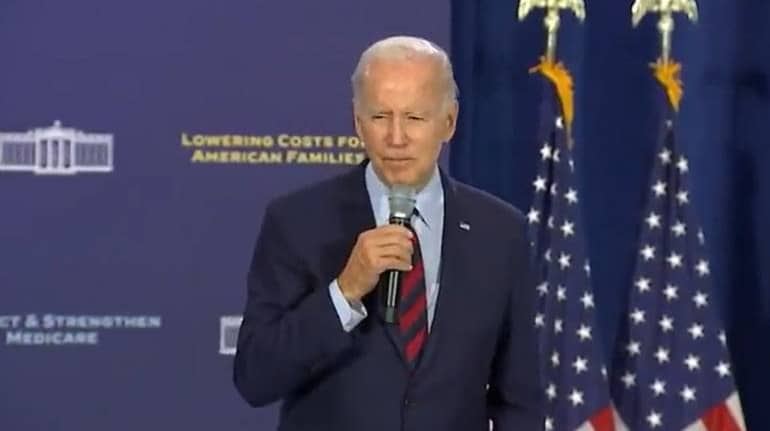



The United States and China will begin their highest political-level engagement with each other when US President Joe Biden holds his first in-person meeting with Chinese President Xi Jinping in Bali on Monday.
The focus of their talks will be to lower the rising tension over Taiwan and avoid a military confrontation over the status of the self-governed island that the People’s Republic of China (PRC) claims to be a breakaway province.
But surprisingly, though the issue of Ukraine will also be discussed between the two leaders, it is not on their priority list. The thrust of the meeting, therefore, is not aimed at finding an early resolution to the nine-month-old war.
This clearly indicates that the rising energy and food prices because of the ongoing war and its effects on the global economy, are not priorities of the Sino-American talks.
However, these issues could form part of the discussions when all the other leaders meet at the G20 summit a day after the Biden-Xi talks.
Biden said during a news conference on Wednesday that he wanted to draw “red lines” in the working relationship with China, evaluate the critical interests of the United States and “determine whether they conflict with one another. And if they do, how to resolve it and how to work it out.”
Biden will be coming to the meeting after his Democratic Party lost the House of Representatives to the Republican Party in the midterm polls. Though it is not clear who will control the Senate, the outcome of the election leaves the US President in a much weaker position.
By contrast, Xi will come into the meeting as a much stronger leader after getting the Communist party’s approval for his unprecedented third-term as general secretary.
The meeting between the two — the first in-person engagement since Biden became US President in January 2021 — shows an inclination from both sides to not allow the relations to deteriorate further.
Jake Sullivan, the US National Security Adviser, told reporters in a briefing on Thursday that Biden “will get to sit in the same room with Xi Jinping, be direct and straightforward with him as he always is, and expect the same in return from Xi”.
The meeting on the sidelines of the G20 summit in Indonesia’s Bali on November 15 and 16, indicates a sense of urgency in re-engaging at the highest level.
Biden and Xi have spoken to each other over telephone and video-links, five times since the former moved into the White House in 2021.
They had met physically under the Barack Obama presidency. But this is their first in-person meeting in nearly two years.
Before his meeting with Xi, the US President will also attend the climate conference in Egypt and visit Cambodia for engagement with leaders of Southeast Asia, before arriving at Bali.
Since the meeting between the two leaders became known, US officials have been stressing that Biden would make no “fundamental concessions” over US support for Taiwan.
That is understandable given the domestic political situation that Biden finds himself in after the mid-term elections. Any attempt on his part to make concessions to China will be seen by his detractors as yet another sign of a weak president. Moreover, after losing control of the House in the recent polls, it may be difficult for him to push through any major foreign policy initiative.
But it is also unlikely for China to go out of its way to foment trouble over Taiwan, unless the initiative to further deepen engagement with the island comes from US politicians.
China sees Taiwan as part of its territory and insists the island cannot exist as an independent nation.
At last month’s 20th Congress of the Chinese Communist Party, Xi had made it clear that reunification of Taiwan with the mainland was a priority and which Beijing will try to achieve through peaceful means.
But if that method failed, China would not foreclose the option of using force to get Taiwan.
Biden, on his part, has been bold about Washington’s support to Taiwan. As US President, he has said four times that the US will come to Taiwan’s defence if it is attacked by China.
Relations between the two sides that had already been strained because of their dispute on trade and technology issues, had deteriorated when US House Speaker Nancy Pelosi visited the island in July.
As a protest to her visit, China had conducted a series of coercive military drills around the island creating unprecedented tension in the Taiwan Straits.
The hype over the Biden-Xi meeting notwithstanding, US officials have tried to lower expectations of any breakthrough at the talks.
Though the two leaders would discuss several other issues of mutual concern and interest beyond Taiwan, no joint statement will be issued after their meeting.
The US National Security document has identified China as America’s main challenger and rival that had both the intent and the ability to challenge the existing world order dominated by the US.
But the forthcoming meeting in Bali shows that despite their rivalry and competition, which is likely to intensify in the coming months, both sides will try to look for frequent engagements to minimise the chances of a risky confrontation that could end up in a devastating military conflict.
Discover the latest Business News, Sensex, and Nifty updates. Obtain Personal Finance insights, tax queries, and expert opinions on Moneycontrol or download the Moneycontrol App to stay updated!